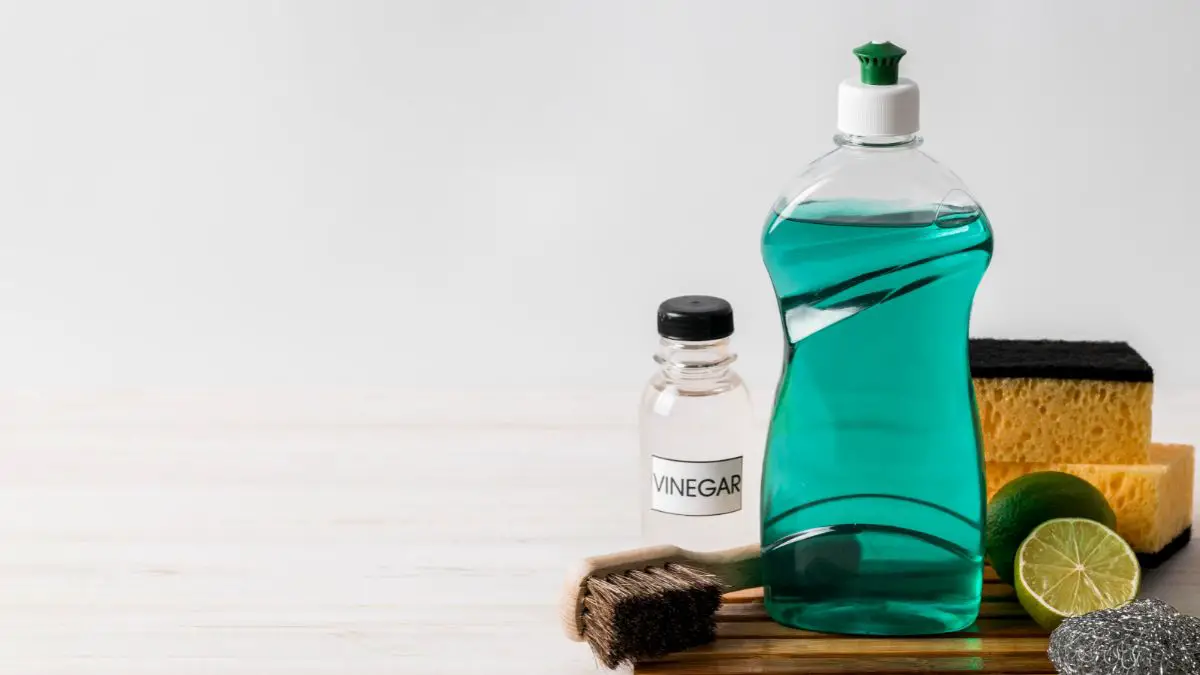Are you a homeowner with a septic system? Are you looking for an inexpensive, reliable, and safe way to clean your dishes or other items around the house? If so, then Dawn dish soap is worth considering, as it can offer great results at an affordable price. But first, it’s important to consider whether this product is safe for septic systems. In this blog post, we’ll be exploring just that; investigating the safety of Dawn dish soap when used with a septic system and offering some tips on ensuring its proper use.
What Is Dawn Dish Soap?
Chances are, you’ve heard of Dawn dish soap. It’s one of the most popular dish soaps on the market, and for a good reason. But what about Dawn makes it stand out from the other brands?
Dawn is a brand of liquid dish soap made by Procter & Gamble. It was first introduced in 1973 and became popular due to its ability to clean dishes quickly and easily. Since then, it has become one of the most popular dish soaps on the market.
Aside from its cleaning power, Dawn is also incredibly affordable compared to other brands of dish soap. Plus, it comes in various scents—including original scentless—so you can choose the best one.
Additionally, many people love the convenience of buying refills or larger bottles depending on their needs and budget at any given time. Finally, Dawn is available in many stores across the country (and online), making it easy to find when needed.
What Are Its Main Ingredients?
Dawn is known for its ability to easily cut through grease and grime. In addition, the formula contains active ingredients such as surfactants that break down dirt and oils on dishes, pots, pans, utensils, and other kitchen items quickly and easily without having to scrub too much. The formula also contains ingredients that help make sudsing easier when washing dishes by hand (as opposed to using a dishwasher). This helps make washing dishes faster and more efficient.
Is Dawn Dish Soap Safe for Septic Systems?
The short answer is yes! A small amount of Dawn dish soap won’t likely cause any damage to your septic tank or pipes, but large amounts will undoubtedly affect the bacteria levels in your tank and the efficacy of your system. That’s why it’s important to know exactly how much dish soap goes down the drain each time you do dishes or clean surfaces in your home.
Septic systems rely on healthy bacteria levels to break down solid waste material and keep things running smoothly. Unfortunately, too much dish soap can kill off beneficial bacteria and clog drains, leading to slow drainage, backups, and other serious septic issues. The good news is that as long as it’s used sparingly, Dawn dish soap should be safe for most septic systems without causing lasting damage.
What to Do if Dawn Dish Soap Causes a Septic System Problem?
Using too much Dawn dish soap—or any other type of detergent—can cause problems with your septic tank, such as clogging or overflowing. Here’s what you should do if you think your septic system has been affected by Dawn.
- Check for signs of a septic system problem. You may notice that water is backing up in your sinks and tubs, that your toilet won’t flush properly, or that an unpleasant odor is coming from your drains. These can all be signs of a clogged or overflowing septic tank.
- Stop using Dawn dish soap immediately if you suspect it is causing a problem with your septic tank. Use hot water and baking soda to clean the dishes until the issue is resolved.
- Contact a professional plumber immediately if the signs of a septic system problem continue after switching to baking soda and hot water for dishwashing. A professional plumber can assess the situation and determine whether or not Dawn dish soap was indeed the cause of the issue and how best to fix it.
- Take steps to prevent future problems with your septic tank due to excessive use of detergents like Dawn dish soap, such as using less detergent per load of dishes or limiting how often you do laundry or run the dishwasher.
- Consider investing in a new type of detergent specifically designed for use in homes with septic systems; these products are formulated to be gentler on septic tanks than traditional detergents like Dawn dish soap and will help prevent future issues occurring.
Alternatives to Dawn Dish Soap
Suppose you’re worried about using too much Dawn dish soap in your septic tank. In that case, some alternatives available can help reduce the risk of potential damage caused by high levels of sudsing agents found in traditional liquid dish soaps.
For example, powdered detergents are usually more effective at cleaning dishes than liquid soaps but contain fewer sudsing agents, which makes them better for use with septic tanks.
In addition, several brands offer low-sudsing cleaners specifically formulated for use with septic systems that can help keep things running smoothly while still providing a thorough clean every time.
Final Thoughts
Dawn dish soap can be used safely in septic systems as long as it’s used sparingly and isn’t the sole source of cleaning. To reduce the risk of potential damage to your system due to overuse of sudsing agents, consider investing in a product specifically designed for use with septic tanks or switching to a powdered detergent. Remember, it’s always best to know exactly how much dish soap you use and take preventative measures to keep your septic system healthy.
Being mindful of how much Dawn dish soap is used in your home can help ensure that your septic system runs efficiently and without any significant issues. Taking these simple steps now can save you a lot of time, money, and headaches in the future. Lastly, contact a professional plumber if you think your septic system has been affected by Dawn dish soap.


